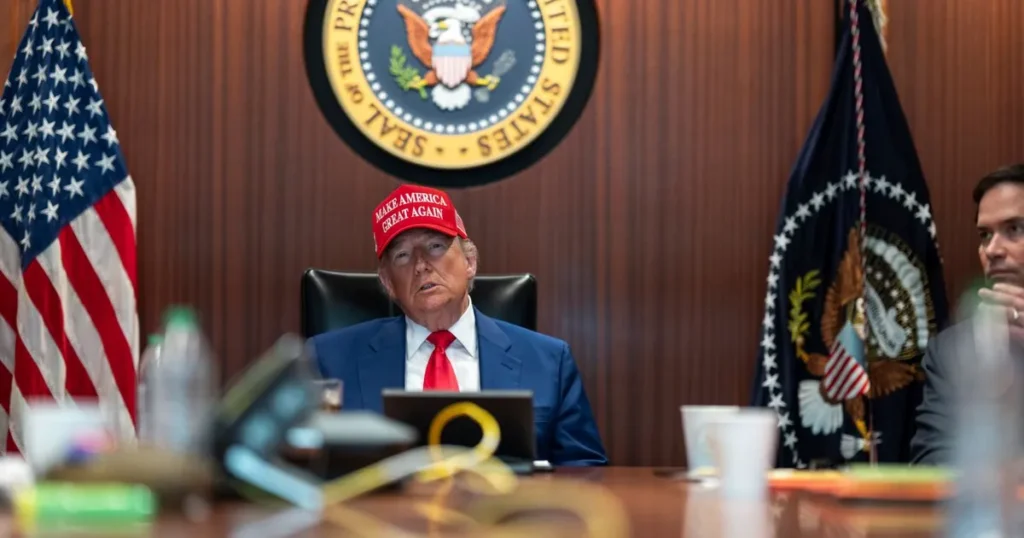
“The April 15 “Hemedti coup” mantra is a diversion. The real coup was October 25, 2021—an Islamist bid to reclaim a patronage state. Today’s war is the counter‑revolutionary instrument to lock that “yard” back down.
Rasha Awad’s piece cuts through the propaganda fog: you cannot “coup” a regime that itself seized power by force. The phrase “Hemedti tried a coup on April 15” is political sleight of hand meant to launder the October 25, 2021 putsch and the steady re‑Islamisation of Sudan’s state machinery.
The Sudan Times agrees with her central claim: the ongoing war is the Islamists’ counter‑revolution, designed to bury the December Revolution under rubble and restore their Hakura—the fenced patronage estate they refuse to surrender.
Legitimacy inverted
Awad asks the right question: “A coup against what?” After SAF Gen. Abdel Fattah al‑Burhan’s 2021 power grab dissolved civilian authority, any talk of defending a “legitimate state” becomes farce. Islamists were reinstalled across ministries, security organs, and state corporations. Officers previously implicated in anti-transition plots were rehabilitated. Those moves were not administrative accidents; they were chess pieces positioned for a war the deep state knew was coming.
The war as the Islamists’ coup
Labeling the conflict a rogue militia’s bid to “engulf the state” ignores who lit the fuse. The Islamists needed a conflagration to:
- Reassert emergency rule and suspend democratic demands.
- Fragment civilian coalitions through exhaustion and displacement.
- Rebrand themselves as guardians of sovereignty against a “mutinous” RSF.
Awad’s framing is precise: the war itself is the coup, executed to suffocate the December Revolution and re‑cement Islamist command.
The Hakura metaphor: Owning the yard
By invoking the “yard” (Hakura), Awad captures how Sudan’s state has been treated—as private real estate divided among loyalists. The RSF was originally engineered to guard that yard. Its revolt against injustice exposed the fragility of the arrangement. Yet instead of dismantling militia politics, the “yard owners” doubled down, spawning new auxiliaries and “joint forces” that now even fence off ministries at the heart of power. The patronage plot is cannibalising itself.
Every fresh “joint force” or “popular resistance” brigade further hollows what’s left of state authority. Civilians face overlapping chains of command, arbitrary arrests, and racketeering. Accountability dissolves into a haze of “rogue elements.” Awad’s ridicule is earned: the Islamists are birthing militias faster than they can win a war.
When confronted with the Joint Force dilemma, the response from its architects is to float partition schemas—“river and sea state” here, “western state” there—shrinking Sudan into ever smaller fiefdoms. Awad rightly calls this the ceiling of a racist mindset: reduce plural societies to caricatures, then let them fight to exhaustion. The Darfur “let them annihilate each other” logic is genocidal in slow motion and blind to Darfur’s complexity.
Awad closes on the only viable path: ditch the partisan Hakura model for a federal, democratic, civilian state—one that distributes power by law, not by gun or sect. That means:
- Demilitarising politics and unifying command under civilian oversight.
- Institutionalising pluralism and regional autonomy without warlordism.
- Pursuing real transitional justice—not amnesty-for-loyalty trades.
- Rebuilding a professional bureaucracy cleansed of ideological capture.
We endorse this blueprint fully. Anything less leaves Sudan trapped in a perpetual cycle of coups, counter-coups, and proxy wars.
Bottom line: Awad names the con: April 15 was not a coup attempt; it was a reaction inside a system already hijacked on October 25. The Islamists’ war is the real coup. Sudan’s salvation lies outside the Hakura—in a federal, democratic, civilian state that no faction can fence off. We agree—fully.
TASSIS model works
The Founding Alliance (TASIS) sketches almost exactly the kind of post-Hakura order Awad calls for: a civilian-led, federal, pluralistic state with justice at its core. Its charter rejects Islamist tutelage, endorses decentralisation, and speaks the language of rights rather than spoils. If implemented in good faith, those planks answer the demand to replace partisan fiefdoms with civic institutions.
The test is execution, not intent. As an alliance whose backbone is the RSF—a force that broke with the Islamist deep state and now publicly signs onto civilian supremacy—TASIS carries both the coercive leverage to keep spoilers at bay and the responsibility to retire that leverage in stages. The pathway is already sketched: audited budgets, a clear timetable to fold RSF units into a single national army. If those benchmarks are locked into law and monitored by independent civilians, the RSF’s role becomes a transitional guarantor rather than a new yard owner—a bridge out of the Hakura, not another gatekeeper.




